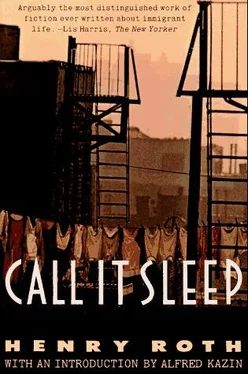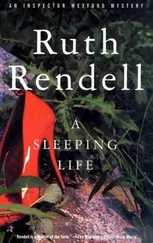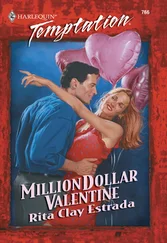Henry Roth - Call It Sleep
Здесь есть возможность читать онлайн «Henry Roth - Call It Sleep» весь текст электронной книги совершенно бесплатно (целиком полную версию без сокращений). В некоторых случаях можно слушать аудио, скачать через торрент в формате fb2 и присутствует краткое содержание. Год выпуска: 1992, Издательство: Farrar, Straus and Giroux, Жанр: Классическая проза, на английском языке. Описание произведения, (предисловие) а так же отзывы посетителей доступны на портале библиотеки ЛибКат.
- Название:Call It Sleep
- Автор:
- Издательство:Farrar, Straus and Giroux
- Жанр:
- Год:1992
- ISBN:нет данных
- Рейтинг книги:4 / 5. Голосов: 1
-
Избранное:Добавить в избранное
- Отзывы:
-
Ваша оценка:
- 80
- 1
- 2
- 3
- 4
- 5
Call It Sleep: краткое содержание, описание и аннотация
Предлагаем к чтению аннотацию, описание, краткое содержание или предисловие (зависит от того, что написал сам автор книги «Call It Sleep»). Если вы не нашли необходимую информацию о книге — напишите в комментариях, мы постараемся отыскать её.
, his first novel, in 1934, it was greeted with critical acclaim. But in that dark Depression year, books were hard to sell, and the novel quickly dropped out of sight, as did its twenty-eight-year-old author. Only with its paperback publication in 1964 did the novel receive the recognition it deserves.
was the first paperback ever to be reviewed on the front page of
, and it proceeded to sell millions of copies both in the United States and around the world.
Call It Sleep
Call It Sleep — читать онлайн бесплатно полную книгу (весь текст) целиком
Ниже представлен текст книги, разбитый по страницам. Система сохранения места последней прочитанной страницы, позволяет с удобством читать онлайн бесплатно книгу «Call It Sleep», без необходимости каждый раз заново искать на чём Вы остановились. Поставьте закладку, и сможете в любой момент перейти на страницу, на которой закончили чтение.
Интервал:
Закладка:
“Ten flaws?”
“Yea!”
“Buzjwa!” they chorused.
“Yea?”
A short space of silence followed while eyes again glued to the coin on the cellar floor. It was practically indistinguishable now, but still Kushy fished, declining all the offers of those who suggested spitting down at the coin to clean it. Oblivious of the passing time, David peered down with the rest.
“You’ll never ged id,” said Izzy at length. “An’ maybe id ain’ even a nickel,” he added waspishly.
“Maybe you ain’ gonna ged mobilized,” Kushy answered ominously. It was evident to all that long frustration had exhausted his patience.
“Aaa, don’ mobilize so fast!” muttered Izzy.
“Yuh wan’ me to show yuh?” The sinker jogged ominously across the cellar floor.
“Tough guy!”
“I’ll spid in yer eye in a minute!”
“You an’ who else?”
“Me an’ myself!” The sinker flew up. The next moment Kushy had sprung to his feet.
(From somewhere an obscure drum of hooves)
“Wan’ me to show yuh?” he blustered.
“Yea!” Izzy rose as well.
David shrank away. He hated fights. Why did they have to fight and spoil everything? But before the two pugilists had time to fly at each other, a loud, imperious rapping startled them all. They stared at the gutter. With a cry David recoiled. Poised on the side step of the milk wagon, sleeveless shirt dazzling in the light, his father was rapping the butt-end of the whip against the wagon—“Come here!” He bit off the Yiddish words.
David flung himself toward the curb. “I didn’ know, papa! I didn’ know! I thought you — you weren’t ready.”
“Get in!”
He could hear the amazed whispers of the other boys on the side-walk. With numb, aimless haste, he grasped the first thing that seemed to offer a way up, the spokes of the wagon wheel. His feet, cramped with kneeling, slipped toward the hub. His father’s jarring hand hooked under his armpit, yanked him roughly aboard.
“Witless block!” he ground out, “Lucky for you I found you. If I hadn’t I would have flayed you—!” He flicked the reins. “Giddap Billy!” The wagon rolled forward. “Why I don’t give a blow to crack your head I don’t know!”
Whimpering David cowered against the loose milk-boxes rattling behind him.
“If I had the time—!” he broke off significantly. “But disobey me again!” And with a furious sidelong glare, leaned out through the window-like opening in the front of the wagon and nipped the horse with the end of the whip. “C’mon Billy!”
The horse broke into a heavy gallop. At Avenue C, they turned and headed north. Letting the reins rest on the front bar a few seconds, his father reached behind him, pried loose an empty box and set it down beside David. “Sit down! But hold on to the side there, so you won’t fall off as only you are able.”
They drove on rapidly; Ninth Street dropped far behind — it seemed to him forever. Relieved by slight flurries in traffic from his father’s smouldering eye, David stared unhappily at the houses gliding past the doorway. He felt strange — feverish almost. Whether it was that he had been staring down into the cellar too long, or whether because his fear of his father clouded and distorted all the things he saw, he could not tell. But he felt as though his mind had slackened its grip on realities. The houses, pavements, teams, people on the street no longer had that singleness and certainty about them that they had had before. Solidities baffled him now, eluded him with a veiled shifting of contour. He could not wholly identify even the rhythm and the clap of hooves; something alien and malign had fused with all the familiar sounds and sights of the world. The sunlight that had been so dazzling before was mysteriously dulled now as though filtered by an invisible film. Something of its assertion had been drained from stone, something of inflexible precision from iron. Surfaces had hollowed a little, sagged, edges had blurred. The stable lineaments of the mask of the world had overlapped, shifted configuration as secretly and minutely as clock-hands, as sudden as the wink of an eye. It was strange. It had happened before. A vague, diffuse aching filled his breast. Again and again, he sighed, uncontrollable, shivery, stealthy sighs. Suddenly, he realized that he had not known how happy he had been — only a little while ago, unaccountably free and happy — July, June, May. It was gone now. He was haunted again.
He looked from the street to his father. Too tall for the wagon, he stooped forward, black reins loose in weathered hand. Nothing about him ever changed. Let worlds heave and freeze, he remained the same — always the thin inscrutable mouth, always the harsh pride of taut nostrils, heavy lidded eyes. Under the sheer, unswerving steep of his aloofness, there was shelter sometimes, but never foothold.
They turned east, left the pavements behind. On the cobbled streets, the horse’s hooves rang out now sharp now hollow. The wagon bounced and clattered. As the streets grew empty, the houses grew smaller and shoddier. There were no children to be seen, only cats sunning themselves before battered doorways. They turned a corner. Between the looming of enormous gas tanks, the river looked as if the shore beyond were only a blunt wedge sideways through the sky, so alike in azure were water and heaven. Here were no habitations. Beside the curb, a long, deep ditch through the pavement had been left uncovered. From the bottom of the trench as they neared it, rose the sweetish, festering stench of the city’s iron entrails. His father swung out wide, passed the embankment of rusty soil set with red lanterns, and drawing up to the curb, reined in his horse.
“Move!” he said.
David scrambled to one side. His father reached into the back of the wagon, dragged out two steel trays and set them on the ribbed wagon floor. From three boxes, all of which were filled with bottled milk and covered with ice, he loaded both trays, and when every square in the trays had been planted, shored bottles against leaning bottles in glistening white pyramids. In the last box only four bottles sprouted from between the cracked ice. These he left behind, and shoving both trays near the door-way, he climbed out into the sunlight. One after another he swung them down, grunting as he did so, the sinews of his throat leaping like bow-strings.
“This time don’t forget,” he said, glancing about. “Stay where you’re told, hear me?” His brief nod was full of meaning, and then he turned away and lunged forward and with stiff, jerky gait, hurried down a narrow lane between squat and dingy shacks. As he drew away, deeper and deeper shadows pitted the stretched thews of his long bare arms. Under his flat springless tread, the crushed stones on the ground slid and crunched. The path turned, curving round a gas tank. With a last clink of bottles he disappeared.
III
UNREAL quiet … Against the drowsy, dwindled hum of the city only the sound of the horse champing softly on his bit, pawing or rattling his traces could be heard. The arid cobbles, distinct close at hand and hemmed in by peeling bill boards, blackened hovels, vacant storage houses, contracted to scales in middle distance, slurred further on and slid up a narrow groove of houses into dusty blue sky. Rarely and even then too far for a sound to travel, a horse and wagon crossed the street. From the trench in the pavement, the rank, persistent damp mingled with the odor of rancid milk in the wagon. Time dragged.
Two men slanted past the corner. After the strange silence of the street and the strange disquiet in himself, David found the scrape of soles on sidewalk suddenly welcome. One of the men seemed about to cross the street, but his companion gave his arm a short tug, said something and both swerved from their course and shambled leisurely toward the wagon. Their coats were slung over their shoulders and as they walked they wiped their faces in the lining. A grey rope held up the pants of one, the other had safety pins in his suspenders. Both wore dirty, blurry, striped shirts, torn under the neck-bands and collarless. Their features, as they grew more distinct, were blunt and coarse, pocked and purplish as peach-stones. The leaner was the shaggier of the two, his hair, the blonde of a gunny sack, matted under his brown felt hat. The stockier, under his tilted cap, had a moon-shaped brow, good-humored, piggish eyes, and between puffy jowls a short mustache like oiled hemp, smoke-singed at the fat lips. There had been something significant about the way they had nudged each other and then changed their course, and now as they sauntered within a few feet of the wagon, David began to hope that they would pass without stopping.
Читать дальшеИнтервал:
Закладка:
Похожие книги на «Call It Sleep»
Представляем Вашему вниманию похожие книги на «Call It Sleep» списком для выбора. Мы отобрали схожую по названию и смыслу литературу в надежде предоставить читателям больше вариантов отыскать новые, интересные, ещё непрочитанные произведения.
Обсуждение, отзывы о книге «Call It Sleep» и просто собственные мнения читателей. Оставьте ваши комментарии, напишите, что Вы думаете о произведении, его смысле или главных героях. Укажите что конкретно понравилось, а что нет, и почему Вы так считаете.












